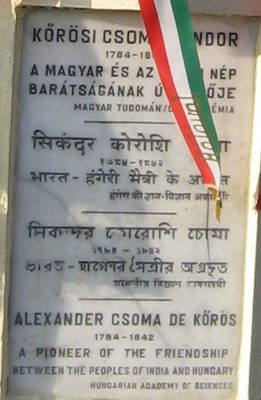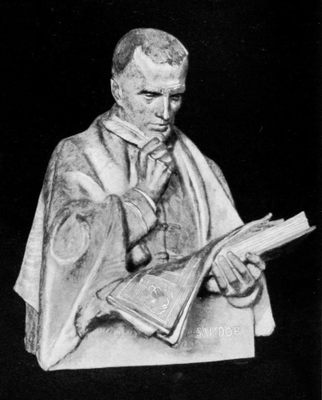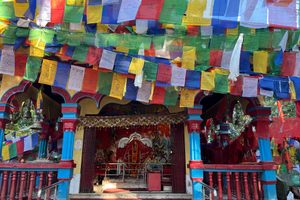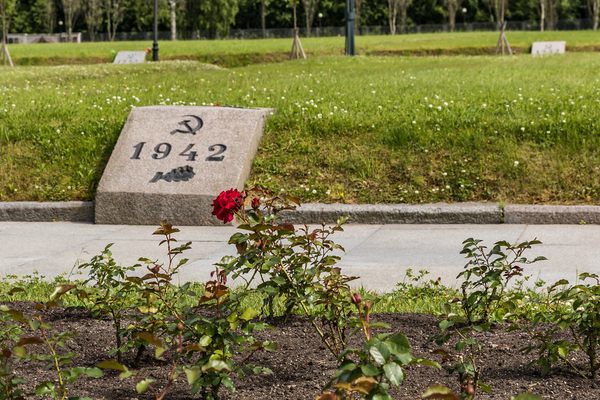About
Each year, the Hungarian government sends a delegation to the Old Darjeeling Cemetery to honor Alexander Csoma (or more properly in Hungarian, Sándor Csoma de Kőrös) whose pioneering linguistic studies helped open Central Asia to the West. Csoma died of malaria in Darjeeling in 1844, but the effects of his scholarly contributions continue to be felt nearly 2 centuries later.
Born in Transylvania (which was then under the Hungarian crown) around 1784, Csoma was initially interested in finding the origins of the Hungarian people, which he believed were secreted in the land of the Uyghurs. His immersion in history required equally extensive studies in languages. By the time he began his travels in Asia, Csoma had learned 13 ancient and modern languages.
In 1819 Csoma departed Hungary and set off to find the old Hungarian homeland. He was unable to visit Uyghur settlements, but found himself in the Himalaya, where he began studying the Tibetan language. Csoma eventually developed the first Tibetan-English dictionary.
On his third trip to Tibet, he set out for Lhasa from Calcutta (where he spent years mastering Sanskrit) and stopped in Darjeeling. There, he succumbed to a fever, never achieving his original goal and dying ignorant of the fact that Uyghurs are actually Turkic peoples, not related to the Hungarians at all.
The Old Cemetery, where Csoma was laid to rest looking out on historic tea gardens and distant Himalayas, likely has more than 100 graves, but it has been neglected through the years, and many of the identities of those buried there are unknown. Csoma’s grave, however, is one of two that continues to receive attention and care, as the Archeological Survey of India has declared the cemetery a site of national importance. Together with the British Association of Cemeteries in South Asia, the ASI looks after Csoma as well as the grave of Lt. Gen. George W. Aylmer Lloyd, the founder of Darjeeling.
Related Tags
Delhi and Rajasthan: Colors of India
Discover Colorful Rajasthan: From Delhi to Jaipur and Beyond.
Book NowCommunity Contributors
Added By
Published
May 21, 2020
























